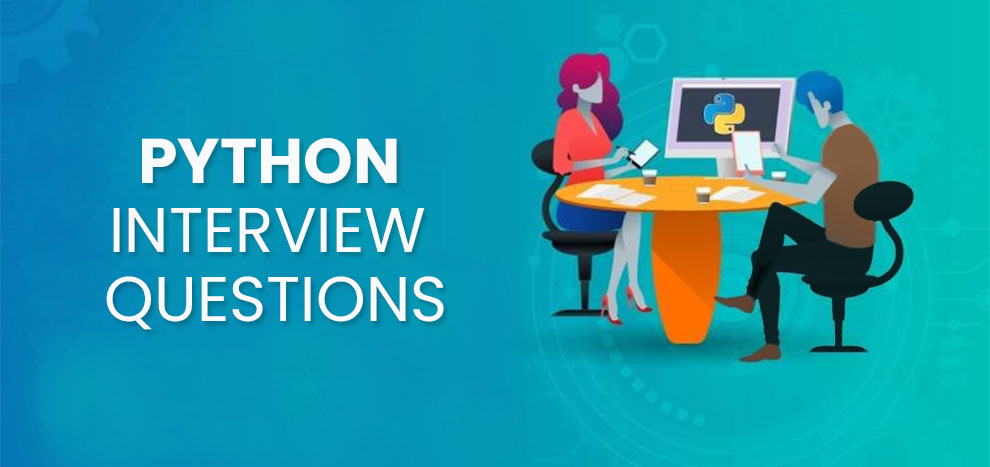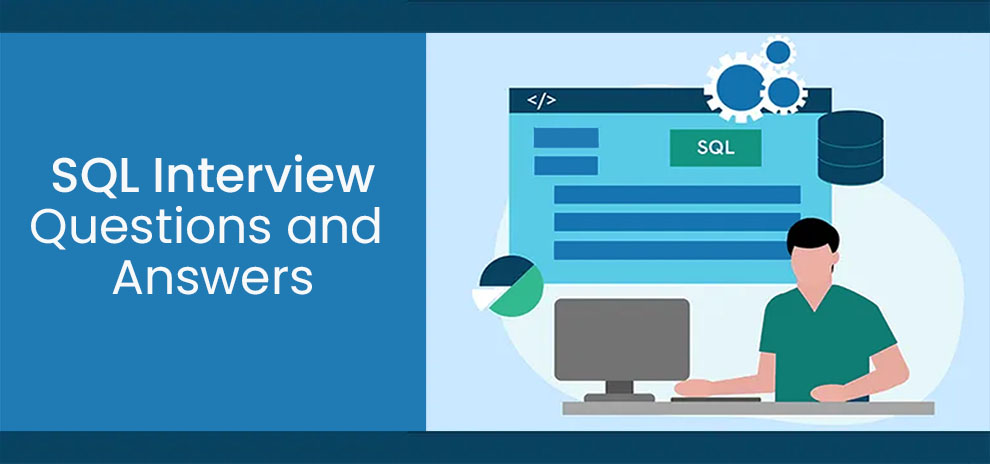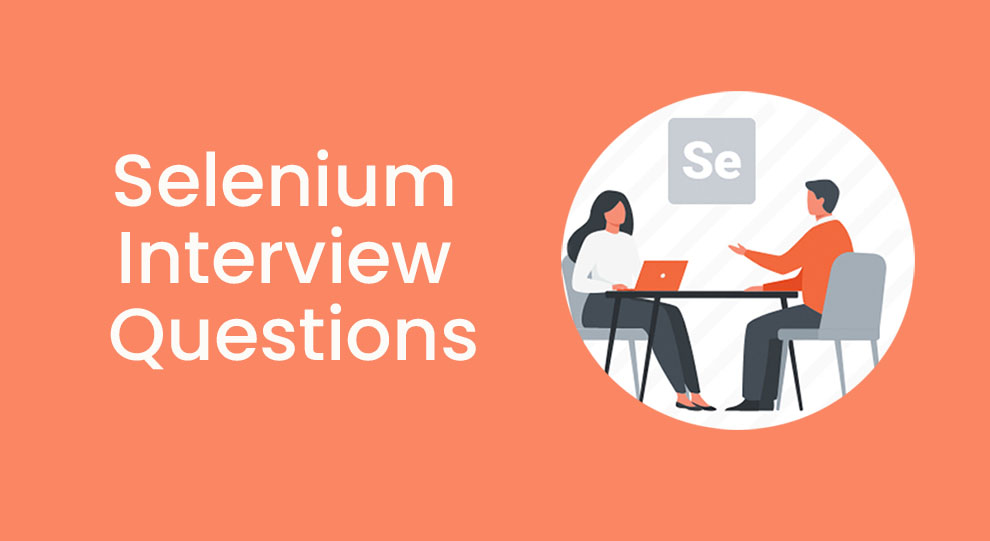You may not be an expert with Python, but it is almost impossible for you to have not heard of Python. It is one of the top programming languages, and in Python, there is a solution for every field.
It implies the versatility and the bright future of the language.
There are several fields where Python is the most suitable language like Game Development, Application Development, Data Analytics, AI, Web Development, IoT, and Machine Learning.
Jump To
- Why Is Python So Popular?
- What Are The Main Topics In Python For An Interview?
- Basic Interview Questions And Answers On Python
- Tricky Python Technical Interview Questions And Answers
- Python Interview Questions And Answers For Freshers
- Python Coding Interview Questions And Answers
- Python Programming Interview Questions And Answers
- Python Interview Questions For Advanced Experienced Learners
- Bonus Basic + Advanced Python Interview Questions and Answers
- How Do I Prepare For A Python Interview and Stand Out?
- FAQs on Python Interview Questions and Answers For Experienced
It is not all. Many of the industry’s top names like Pinterest, Instagram, Google, and YouTube, have developed their applications on Python or have made their tech suite shift to it.
Why Is Python So Popular?
Several reasons contribute to the popularity of Python. A few of them are:
- It is very straightforward to learn and use.
- They have been around for three decades, which justifies their mature and supportive community.
- It finds wide use in Data Science, Deep Learning, and Artificial Intelligence.
- You receive support from top corporate sponsors.
- Python has 100s of frameworks and libraries.
- Its speed, versatility, reliability, and efficiency are top-notch.
- Python employs some of the top tech trends like Big Data, Machine learning, and Cloud Computing.
- It is the first choice for many students and programmers because of its high demand in the market.
- Python is one of the most flexible languages that offers developers the to try something new.
- The vast availability of tools and modules makes automation with Python seamless.
Now, let us discuss the top 100 Python interview questions and answers for experienced and freshers. But, before we list these advanced and basic interview questions and answers on Python, we need to first talk about the key topics covered in the Python interview to help you acquire a broad perspective.
What Are The Main Topics In Python For An Interview?
The top topics you must cover in your preparation for the interview questions and answers on Python programming are:
- Functions
- Positional and keyword arguments
- *args and **kwargs
- Classes
- Lists
- List comprehension
- Dictionaries
- Sets
- Tuples
- Lambda expressions
1. Basic Interview Questions And Answers On Python
Ques 1. What are the benefits of using Python?
It is one of the first Python programming interview questions and answers.
Ans. Python is an easy-to-learn, simple general-purpose programming language that accentuates readability and lowers the program maintenance cost. It is an open-source language capable of scripting. Python supports third-party packages and enables code reuse and modularity.
In addition, the high-level data structures in Python with dynamic binding and typing attract a vast community of developers for Rapid Application Deployment and Development.
Ques 2. What is the difference between lists and tuples in Python?
The distinction between tuples and lists is one of the most prevalently asked basic interview questions and answers on Python.
Ans.
- Lists are mutable, and you can edit them, but tuples are lists you cannot edit.
- Lists are relatively slower than Tuples.
Ques 3. Point out the difference between deep copy and shallow copy.
It is also one of the top-asked interview questions and answers on Python programming.
Ans. Deep copy builds a different object and populates it with the original object of the child objects. Hence, you will not see any changes in an original object in the copy. On the contrary, the shallow copy builds a different object and populates it with the references of the child objects. Hence, you will see the changes in an original object in the copy.
Ques 4. What does it mean – Python is an interpreted language?
Ans. An interpreted language carries the statements line by line. In Python, the programs written run directly from the source code, sans any mediator for compilation.
Ques 5. Can we preset Pythonpath?
Such Python programming interview questions and answers are prevalent.
Ans. Yes, we can preset Pythonpath as a Python installer.
Ques 6. What are the supported standard data types in Python?
There will be basic interview questions and answers on Python in almost every interview.
Ans. In Python, the supported standard data types are:
- List.
- Number.
- String.
- Dictionary.
- Tuples.
Ques 7. What is pep 8?
Ans. Often referred to as the PEP -8 or PEP8, it is a document that briefs the best recommendations and practices for writing Python code.
Ques 8. What are keywords in Python?
These Python programming interview questions and answers are elementary but test your fundamental Python knowledge.
Ans. The reserved words which point out a special meaning are the keywords. You cannot use Python keywords for function or variable names.
2. Tricky Python Technical Interview Questions And Answers
Ques 9. What can be the length of the identifier in Python?
It is one of the frequently asked Python coding interview questions and answers.
Ans. The identifier can have any length in Python, but the longest identifier violates PEP -8 and PEP -20.
Ques 10. List all the keywords in Python?
It is one of the commonly asked but tricky Python interview questions and answers for experienced and freshers.
Ans. There are a total of 33 keywords in Python:
These include:
- And
- Or
- Not
- If
- Elif
- Else
- For
- While
- Break
- As
- Def
- Lambda
- Pass
- Return
- True
- False
- Try
- With
- Assert
- Class
- Continue
- Del
- Except
- Finally
- From
- Global
- Import
- In
- Is
- None
- Nonlocal
- Raise
- Yield
Ques 11. What do you understand by zip() function in Python?
Ans. The zip () function in Python will return a zip object. It maps a similar index of several containers. So, it takes an iterable, converts it into the iterator, adds the elements according to the iterables passed, and reverts tuples’ iterator.
Ques 12. What do you know about Python decorators?
Ans. It is a specific change made in Python syntax for easy function alteration.
Ques 13. What are the two main loop statements?
Ans. For and While
Ques 14. Point out the difference between pickling and unpickling.
We cannot complete this guide of advanced Python interview questions and answers for freshers without including this question.
Ans. The pickle module in Python accepts all Python objects, converts them into a string representation, and then employing the dump function, discards them in the file. It is called pickling.
Function – pickle.dump().
On the contrary, the original Python object retrieval from the saved string representation is unpickling.
Function – pickle.load().
Ques 15. Does Python allow you to program in a structured style?
It is one of the tricky interview questions and answers on Python programming.
Ans. Yes, Python lets you code in an Object-oriented and structured style. It provides excellent flexibility for implementing and designing the app code, depending on the app’s requirements.
3. Python Interview Questions And Answers For Freshers
Ques 16. Point out the main Python features.
It is one of the prevalently asked Python questions for the freshers.
Ans. Python is an introductory programming language. It is:
- Object-oriented
- Interpreted
- Free
- Dynamically-typed
- Simple
- Concise
- It has a large community.
Ques 17. Is Python case-sensitive?
It is one of the common questions in Python interview questions and answers for experienced and freshers.
Ans. You refer to a language as case-sensitive if it distinguishes between identifiers like Myname and myname. So, primarily a language that cares about uppercase and lowercase is case-sensitive, and Python does care about the case. Hence, Python is case-sensitive.
Ques 18. What are the in-built types in Python?
It is one of the advanced Python interview questions and answers for freshers.
Ans. The in-built types in Python are:
- Integer
- Complex numbers
- Floating-point numbers
- Strings
- Built-in functions
Ques 19. Is Python a dynamically typed or a statistically typed language?
You will encounter several Python coding interview questions and answers, but you cannot ignore the elementary Python questions like this one. The answer to this would be Python is a dynamically typed language.
Ques 20. Which databases does Python support?
These are top Python interview questions and answers for experienced and freshers.
Ans. MongoDB\ (Unstructured) and MySQL (Structured) are the major databases supported natively by Python. You can import the module and use the functions to interact with the database.
Ques 21. How to capitalize the first letter in the string?
Ans. capitalize() can capitalize the first letter.
Ques 22. Explain the python package?
Ans. These namespaces have multiple or different modules.
4. Python Coding Interview Questions And Answers
Ques 23. How can you delete a file in Python?
Ans. There are two approaches to delete a file in Python:
- os.remove()
- os.unlink()
Ques 24. How can you debug a Python program?
Ans. You can use the following command to debug a Python program:
$ python -m PDB python-script.py
Ques 25. What is a dictionary in Python?
Ans. In Python, the dictionary is an associative array. It works like an in-built mapping.
Ques 26. What are numeric literals?
These are one of the advanced Python interview questions and answers.
Ans. There are three kinds of numeric literals – complex, float, and integer.
Examples:
#Complex Literal
x = 3.14v
#Float Literal
b = 12.8
# Integer literal
a = 20
Ques 27. How will you convert an object to a regular expression in Python?
Such python coding interview questions and answers are prevalent in almost all interviews.
Ans.
repr(a) − Converts object a to an expression string.
Ques 28. What does the <Yield> keyword signify in Python?
Ans. In Python, the <yield> keyword converts all functions into generators. It acts as a standard return keyword. But, the <yield> function will always return a generator object. A function can have several calls to this function.
Ques 29. What does pass imply in Python?
Ans. In Python, pass implies a no-operation statement. So, it is a null operation, and nothing happens on its execution.
Ques 30. What is the output of print str if str = ‘Hello World!’?
It is one of the standard Python coding interview questions and answers
Ans. It will print the complete string.
The output would be Hello World!
5. Python Programming Interview Questions And Answers
Ques 31. State the difference between “is” and “==”?
It is one of the advanced Python interview questions and answers.
Ans. The operator will check to assess if the two variables point to the same memory address, and the == operator evaluates the equality of two values.
Ques 32. What does the All() function do?
Ans. It tests whether all the values in the iterable are true.
Ques 33. What is the use of the ‘#’ symbol in Python?
You cannot escape such Python technical interview questions and answers.
Ans. # helps comment out everything following on the line.
For instance, print (“I love Python”)
#print (“Commented”)
Output: I love Python
Ques 34. What is the purpose of // operator?
You cannot ace the Python coding interview questions and answers if you do not know the answer to such questions.
Ans. It is the floor division. In this division of operands, the output is the quotient, and the digits after the decimal point get eliminated.
Ques 35. What is the output of print list1 + list2, if list1 = [ ‘qwerty’, 800 , 1.92, ‘anil’, 88.2 ] and ist2 = [321, ‘anil’]?
These are common Python technical interview questions and answers.
Ans. It will print concatenated lists.
Output would be [‘qwerty’, 800, 1.92, ‘anil’, 88.2, 321, ‘anil’]
6. Python Interview Questions For Advanced Experienced Learners
Ques 36. Explain the joint () and split () function in Python.
It is one of the top advanced Python interview questions and answers.
Ans. The join () function joins the string based on a delimiter to acquire a single string, and the split () function splits the string based on a delimiter to a list of strings.
Ques 37. What is the function of the ‘is’ operator?
Ans. ‘Is’ function compares the ID of two objects.
Ques 38. How Would You Remove All Leading Whitespace in a String?
Ans. The lstrip() function can remove all the leading spaces from a string.
>>“ Python”.lstrip
Output: Python
Ques 39. How can you comment with multiple lines in Python?
Again one of the top Python interview questions and answers for experienced learners you will most likely encounter in your interview.
Ans. Lines should be prefixed with # to add multiple lines comments.
Ques 40. Does Python support an intrinsic do-while loop?
Ans. No Python does not support an intrinsic do-while loop.
Basic + Advanced Python Interview Questions and Answers – Bonus!
Ques 41. Define encapsulation in Python?
Ques 42. Do runtime errors exist in Python? Give an example?
Ques 43. Give an example of the shuffle() method?
Ques 44. Explain identity operators in Python.
Ques 45. What is swapcase() function in Python?
Ques 46. Explain what the Dogpile effect is. How can you prevent this effect?
Ques 47. How are classes created in Python?
Ques 48. What is a boolean in Python?
Ques 49. Which programming language is a good choice between Java and Python?
Ques 50. What are negative indexes, and why are they used?
Ques 51. What are membership operators in Python? Write an example to explain both.
Ques 52. Explain Inheritance and its various types in Python?
Ques 53. What does the term ‘Monkey Patching’ refer to in Python?
Ques 54. What is __init__?
Ques 55. What is recursion?
Ques 56. How would you define a block in Python?
Ques 57. What is the difference between Django, Pyramid, and Flask?
Ques 58. Why do we need a continue in Python?
Ques 59. How to overload constructors or methods in Python?
Ques 60. Can you create a series from the dictionary object in pandas?
Ques 61. Explain membership operators with example
Ques 62. What are the rules for a local and global variable in Python?
Ques 63. Write a program in Python to check if a sequence is a Palindrome.
Ques 64. What are the parameters and arguments?
Ques 65. Talk about Python limitations.
Ques 66. Is the Python platform independent?
Ques 67. What are generators in Python?
Ques 68. What are the new features added in Python 3.8 version?
Ques 69. What is a Pandas Series?
Ques 70. How to Install Python?
Ques 71. How many ways can be applied for applying reverse string?
Ques 72. Can You Swap Two Variables Without a Third?
Ques 73. What are unit tests in Python?
Ques 74. Write a code to display the current time?
Ques 75. How can we access a module written in Python from C?
Ques 76. What do you mean by Python literals?
Ques 77. Explain the functionality of “break,” “continue,” and “pass.”
Ques 78. How can you use for loop to repeat the same statement over and again?
Ques 79. Explain what Flask is and its benefits?
Ques 80. What applications did you build using Python?
Ques 81. How can you concatenate two tuples?
Ques 82. What is the use of %s?
Ques 83. Explain all file processing modes supported in Python?
Ques 84. Define self in Python?
Ques 85. Write a program to check whether the given number is prime or not?
Ques 86. Write a program to produce the Fibonacci series in Python.
Ques 87. How many arguments can the range() function take?
Ques 88. What is a control flow statement?
Ques 89. How do you write comments in Python?
Ques 90. Write Python code to sort a numerical dataset?
Ques 91. How do you find out which directory you are currently in?
Ques 92. How do you use print without the newline?
Ques 93. Are access specifiers used in Python?
Ques 94. What is type conversion in Python?
Ques 95. What is a map function in Python?
Ques 96. What are the different stages of the Life Cycle of a Thread?
Ques 97. How do you calculate the length of a string?
Ques 98. Write a Function Prototype That Takes a Variable Number of Arguments.
Ques 99. How can you initialize a 5*5 NumPy array with only zeroes?
Ques 100. Write a code to display the contents of a file in reverse?
Related: Best Apps to Learn Python, Top Python Books
How Do I Prepare For A Python Interview and Stand Out?
Now that you are well prepared with the most common Python coding interview questions and answers, here are some tips to help you prepare for a Python interview and stand out.
- Select the correct in-built functions when you solve the problems.
- Use Generators Against List Comprehensions
- Be well-acquainted with the Core Data Structures and Algorithms
- Know about the different Python tools.
- Practice a minimum of 1 to 2 coding questions every day.
- Identify the patterns in the problems to amplify your problem-solving skills.
- Do timed tests and practice whiteboard coding.
- Take several mock interviews
- Build a solid portfolio
- Prepare the commonly asked questions in advance
FAQs for Interview Questions and Answers on Python Programming
Ques 1. What are the Python questions asked in the TCS interview?
Ans. Here are some commonly asked Python questions in TCS interview:
- What is the self?
- Is there a scanf() or sscanf() equivalent?
- What are the two major loop statements?
- Why should we use the Django framework?
- What is data abstraction in Python?
Ques 2. What is PEP 8 asked in MCQs?
Ans. It is a set of recommendations or coding conventions about writing the Python code and making it more readable.
Ques 3. What are the job opportunities for Python experts?
Ans. Python professionals can apply for the following roles:
- Product Manager
- Full-Stack Developer
- Data Analyst
- Software Developer
- Machine Learning Engineer
Ques 4. Can I learn Python in a month?
Ans. If you are consistent and can dedicate ample time, you can learn Python basics easily in a month.
We hope these python interview questions and answers for experienced and fresh professionals help you ace the interview.





